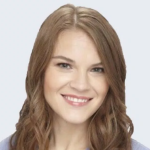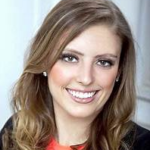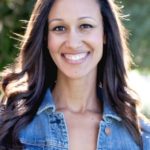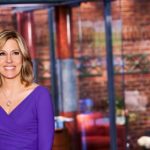Kate Westervelt is the magazine partner editor at Wayfair, the world’s largest online destination for home decor. Kate works with magazines like Real Simple and Coastal Living. Before coming to Wayfair, she worked at InStyle, Good Housekeeping, and The Financial Times. Learn about her career path and advice.
What are your roles and responsibilities as magazine partner editor at Wayfair?
Wayfair has partnerships with some of today’s biggest lifestyle and shelter magazines, including Real Simple, Coastal Living, Sunset, and This Old House. My goal is to give magazine readers and Wayfair shoppers a place to get the looks they love from the pages of their favorite magazines. The Magazine Shops on Wayfair are an excellent way to connect the world of print with e-commerce.
I was brought on at Wayfair to lead this initiative. I work with the editorial teams at each magazine to identify content that will successfully live on Wayfair and provide a great shopping experience for visitors. Additionally, I lay out a month-by-month editorial calendar, gather the imagery and content necessary to create relevant articles, and edit each story before it goes live. The trick is to no longer think about storytelling as solely words on a screen (or for print lovers—on the page). We think about content in 3D. This means I work alongside each magazine’s marketing team to ensure we’re maximizing opportunities to leverage audiences across both print and e-commerce. This could mean anything from producing a real life home makeover that gets featured in the magazine, where every product used in the makeover is able to be purchased on Wayfair—or it could mean using social media to drive awareness, or leveraging the power of a properly distributed email, one that doesn’t just spam shoppers but, rather, one that provides solutions for real-life styling and renovation projects.
Additionally, I am working with the talented teams at AllModern and Birch Lane (two of Wayfair’s brands) to build out successful content strategies for 2016.
What does a typical day look like for you? Please walk me through a day!
A typical day starts at 6 am. The older I get, and the more I work around senior leadership, the more I’ve come to understand that getting a jump on the day is half the battle. This means a real breakfast, a head start on the morning commute, and time enough to answer a precious few emails before my day turns into meetings.
I love getting to my desk each morning. I’ll check my inbox for anything urgent, review my to-do list, and highlight the top five items I must get done in the day. You would be surprised how focused this keeps you.
Then, I’ll circle with some of my assistant editors on the status of various stories, check on assets coming from the folks at any given magazine, and shuffle from one meeting to the next—most recently to discuss big picture content strategy at Wayfair, AllModern, and Birch Lane.
Each day I try to reserve some time for research—whether it’s other brands that are crushing it in the content strategy world, or print publications that are continuously morphing into the digital space.
You previously worked for InStyle, Good Housekeeping, and the Financial Times. How did you know that you wanted to go into editorial?
I love good communication! Good communication stems from sharing ideas, fostering community, and powerful storytelling. Whether we’re flipping physical pages or scrolling on a screen, we’re in constant conversation with one another. I think that’s human nature—wanting to be connected to one another—and I have always been drawn to the way editorial work connects people around the globe.
Additionally, I once heard it said that print anchors history—and it’s so true! I’ve always known I wanted to be a part of that. To know that someday my son (due in March!) can look through old archives of Good Housekeeping and see my name on the masthead—that’s history, and I feel proud to be a part of it.
What is the most important skill to being successful in your role?
Patience and perseverance. As the e-commerce and digital worlds catch on to the importance of content integration and community building, there are often finite resources that require a lot of senior buy-in. There are so many beautiful ways to engage an audience through content—there are only so many engineers out there able to build what you need.
What advice do you have for other people who hope to work in journalism?
Despite what people say about the death of print—communication is essential to human existence. How we communicate will always evolve, but storytelling, brand building, and community building will never cease to exist. Journalism connects the world, so if you believe in this ideal, but refuse to marry yourself to the medium in which we connect (stay flexible!), you’ll have a lovely career filled with fabulous experiences.
What advice would you give to someone in the first five years of her career?
Be the first one in and the last to leave. I know that’s hard, but before the hubby, house, and children—if you really want a career, not just a job—your twenties are the time for hustle.
Zero-in on successful people in your field and absorb everything you can from them. Attend their seminars, read their research, overhear the way they converse.
Additionally, do two things as much as you can—travel cheaply and save as much of your hard-earned dough as possible.
What is the best advice you’ve ever received?
On academics: Never let school get in the way of your education.
On career: It was never a ladder—always a jungle gym. You will move forward, backward, and side to side in your professional life. These are necessary growing pains.
On life: Seek first to understand.
Thank you, Kate!
































Pingback: My Favorite Career Profile Quotes From 2015 - Elana Lyn